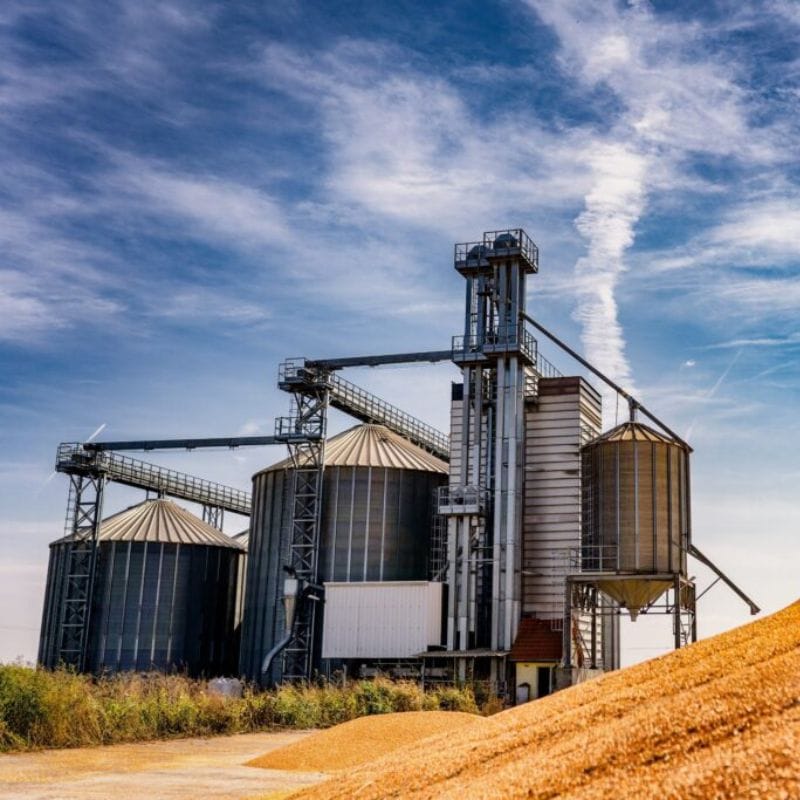When it comes to agriculture and farming, storage and preservation of harvested crops are key to maintaining their quality, reducing spoilage, and ensuring year-round availability. One of the most crucial pieces of equipment used in this regard is a silo.
What is a Silo?
A silo is a large structure designed to store bulk materials, typically used in agricultural and industrial settings. Silos are primarily used to store various grains, forage, and other farm produce, as well as materials like cement, coal, and even silage for animal feed. They come in various forms, including tower silos, bunker silos, and horizontal silos, depending on their specific usage. A silo is a large, vertical storage structure used to store bulk materials such as grain, cement, coal, or other agricultural or industrial products.
In agriculture, silos help preserve harvested crops, protect them from pests and weather conditions, and keep them in optimal conditions for consumption or further processing. The controlled environment inside a silo ensures that the stored material remains dry and free from mold, insects, and contaminants.
What is a Grain Silo?
A grain silo is a specific type of silo designed primarily to store grains like wheat, corn, rice, oats, barley, and other cereal crops. Grain silos come in various sizes and types, ranging from small, on-farm structures to large industrial facilities. These silos are engineered to safely store and maintain the quality of the grains while preventing damage and contamination.
Grain silos are typically made of steel, concrete, or reinforced materials to withstand external pressures and the weight of the stored grains. The design of grain silos is focused on keeping the grains dry and aerated. The environment inside a grain silo is carefully controlled to avoid the development of mold or insects, which could spoil the stored crop.
Some of the key benefits of using a grain silo include:
- Preservation of Quality: Grain silos are designed to maintain the freshness and nutritional value of grains by preventing exposure to moisture, pests, and harsh environmental conditions.
- Maximized Storage: Grain silos allow for the large-scale storage of grains, ensuring that the harvest can be stored and accessed efficiently over time.
- Increased Shelf Life: Properly stored grains in silos can be kept for months or even years, depending on the silo’s design and conditions, reducing the need for immediate sale or consumption.
- Minimized Wastage: By storing grains in a controlled, secure environment, waste due to spoilage and contamination is significantly reduced, making grain silos a sustainable solution.
Why Choose Annapurna Agronics Machinery Pvt. Ltd. for Your Silo Needs?
At Annapurna Agronics Machinery Pvt. Ltd., we specialize in providing high-quality agricultural machinery and silo solutions that are designed to meet the needs of farmers and businesses alike. Whether you’re looking for a grain silo to store your harvest or a more customized storage solution, we offer durable and efficient options that help preserve the quality of your grains and other produce.
Our silos are engineered with precision and built to last, ensuring your crops are stored in the most optimal conditions. We also offer expert guidance in selecting the right silo type for your specific needs, ensuring that you get the most out of your storage system.
Conclusion
Understanding the importance of silos, particularly grain silos, is crucial for anyone involved in agriculture. These storage systems are essential for maintaining the quality and sustainability of harvested crops. With the right silo in place, farmers can ensure their grains are stored securely, protected from spoilage, and ready for market whenever needed.
At Annapurna Agronics Machinery Pvt. Ltd., we are dedicated to providing top-of-the-line silos that meet your agricultural storage needs. Contact us today to learn more about our silo solutions and how we can help you improve your farming operations.


